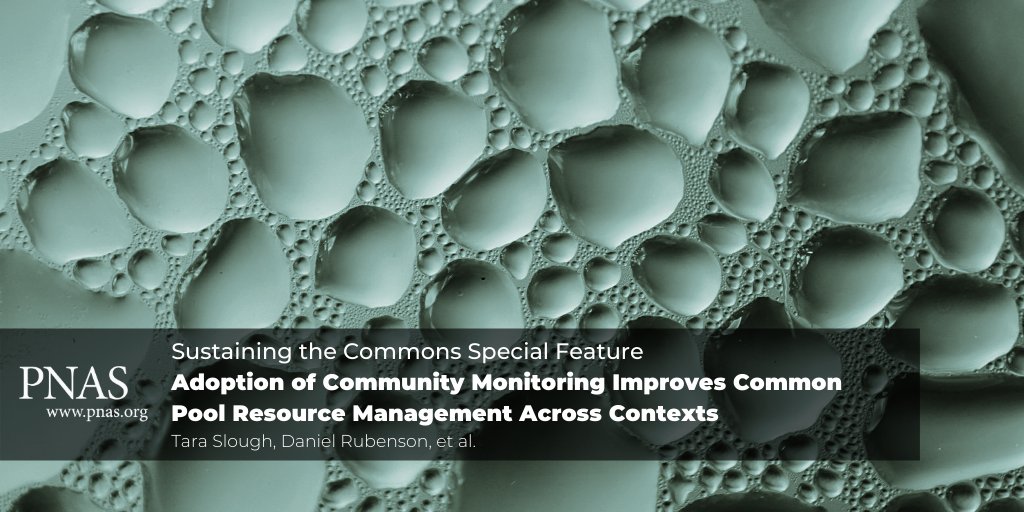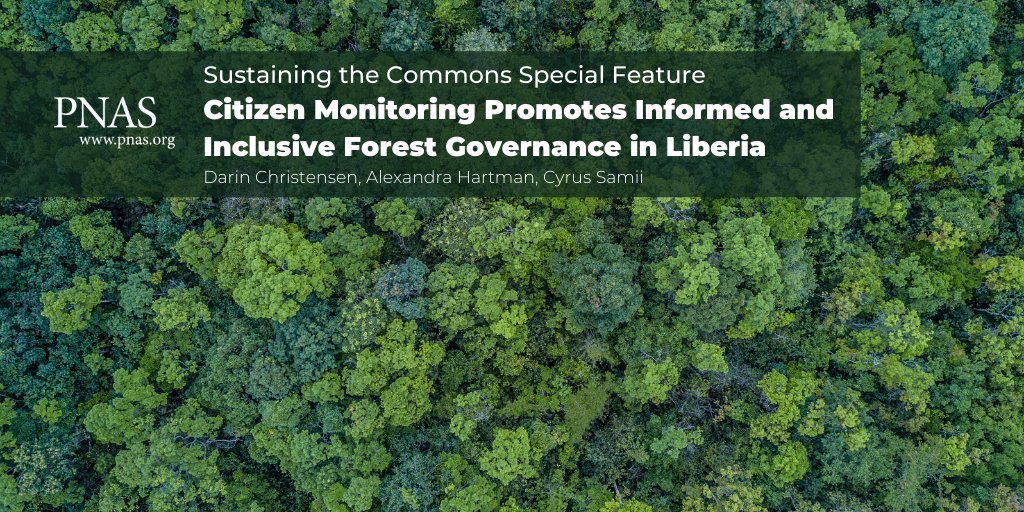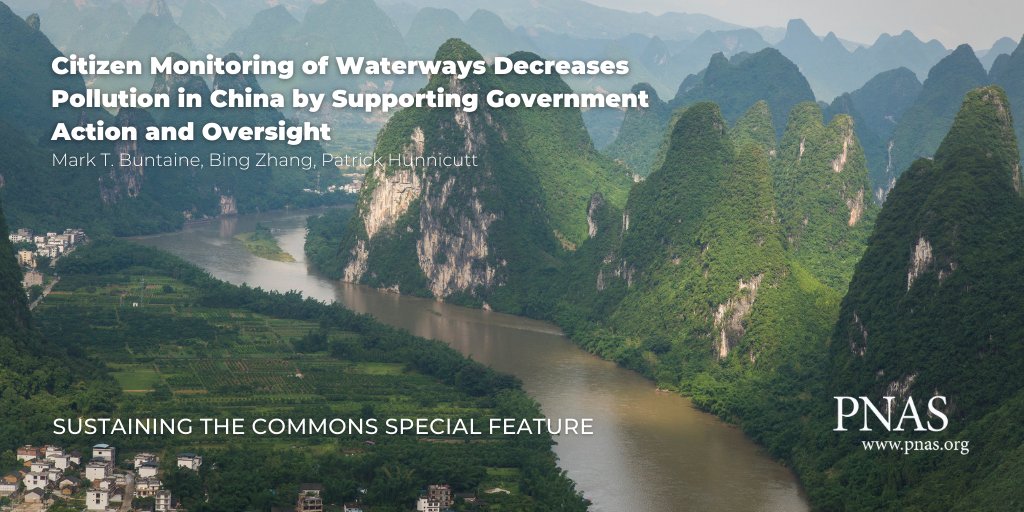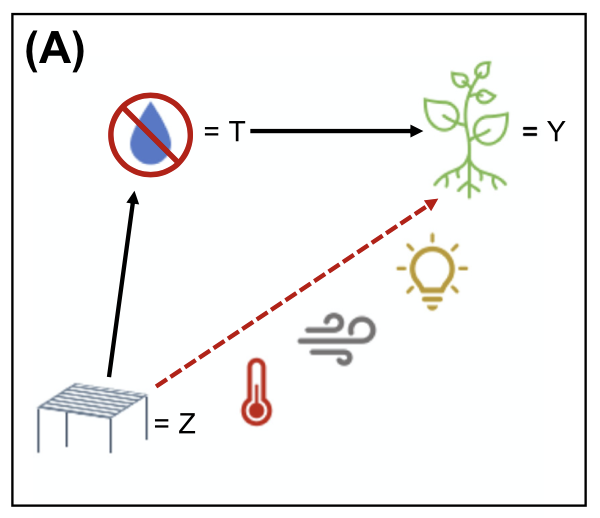PNAS issue “Sustaining the Commons” reports on a set of pre-registered, harmonized RCTs in 6 countries to assess how community monitoring of common pool resources can lead to better resource outcomes.
Issue: bit.ly/3keVi2b
3-min video:
[1/11]
Issue: bit.ly/3keVi2b
3-min video:
[1/11]

@gotonura & I on what we can learn from the Special Feature, incl. the challenges of developing generalizable knowledge about institutions in complex social-ecological systems & of synthesizing empirical evidence in sustainability science [2/11]
pnas.org/content/118/29…
pnas.org/content/118/29…

#Meta-analysis: @tara_slough @dktr_dr @RoeeLevyZ & country teams use all the data for Big Picture meta-analysis. Read the individual studies below to see full richness of lessons learned about mechanisms & moderators of impacts across contexts. [3/11]
pnas.org/content/118/29…
pnas.org/content/118/29…

@cbb2cornell on the uses and misuses of experimental designs and a celebration of the powerful potential of design-based sustainability science studies. #openscience #EvidenceSynthesis [4/11]
pnas.org/content/118/29…
pnas.org/content/118/29…
@deankarlan @chrisudry @Monica_Lambon & E Asiedu explore ethics in social science experimentation & propose that researchers use structured ethics appendices for more complete communication of the ethics of their experiments. [5/11]
pnas.org/content/118/29…
pnas.org/content/118/29…
#Forests in #Liberia: @darinchr @cdsamii & Alexandra Hartman evaluate a program the helps citizens monitor communally managed forests and make forest governance more inclusive. [6/11]
pnas.org/content/118/29…
pnas.org/content/118/29…

#Forests in #Uganda: @SabrinaEisenba @anoukrigterink & Louis Graham evaluate community-led monitoring of the forest and explore whether monitoring leads to displacement of deforestation to unmonitored areas. [7/11]
pnas.org/content/118/29…
pnas.org/content/118/29…

#Forests in #Peru: @tara_slough @jurpelai @JacobKopas evaluate what happens when remote-sensed deforestation alerts with high-frequency information on tree cover loss in the Amazon are given to local communities. [8/11]
pnas.org/content/118/29…
pnas.org/content/118/29…

#Water in #China:@MarkBuntaine @nju_zhangbing & Patrick Hunnicutt evaluate whether volunteers enlisted to monitor the quality of urban waterways can help improve water quality. [9/11]
pnas.org/content/118/29…
pnas.org/content/118/29…

#Water in #CostaRica: Maria Bernedo del Carpio @falpizar and I evaluate an externally encouraged, community-based monitoring program to improve groundwater management. [10/11]
pnas.org/content/118/29…
pnas.org/content/118/29…

#Water in #Brazil: @AliciaCooperma2 @BrigitteSeim & A McLarty conduct multi-methods exploratory research to determine what factors are associated with variation in uptake of community monitoring of groundwater. [11/11]
pnas.org/content/118/29…
pnas.org/content/118/29…

• • •
Missing some Tweet in this thread? You can try to
force a refresh







